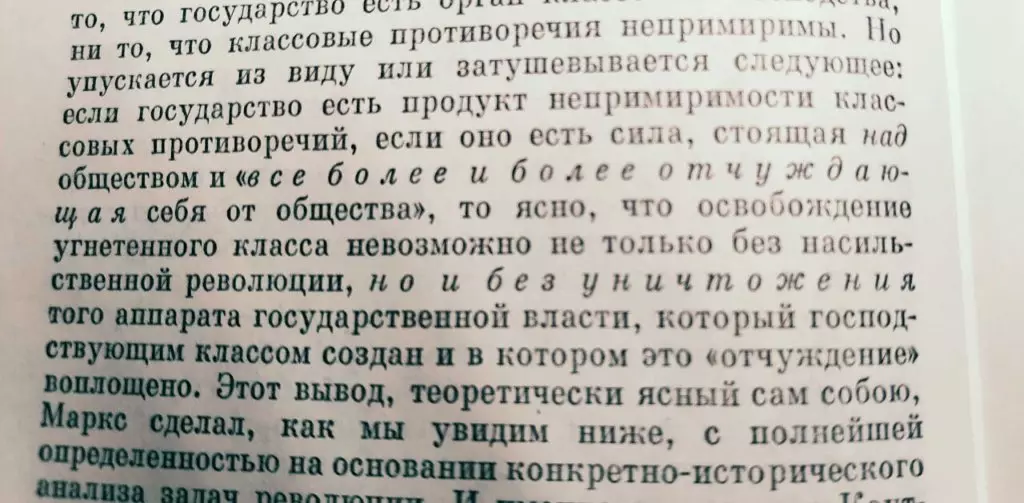What they say about this is philosophers, lawyers and laws of different countries in 5, 50 and 500 words.

After January 6, Trump supporters broke into the capitol and demanded the recalculation of votes in the presidential election, a discussion about the "right of the people to the uprising" again broke out. Its essence comes down to solving the issue, whether civil society has the right to resist tyranny and oppressing with weapons in hand. And if such a right exists, then how to distinguish it from terrorism and armed rebellion.
Last time before 2021, this topic was burly discussed in 2014 - in connection with the Ukrainian events. However, philosophers and lawyers were expressed about the "right to the uprising" and much earlier, hundreds of years before our era in ancient China and ancient Greece. Over the past time, legal science has enriched the works of thinkers as recognizing and justifying the overthrow of tyrants, and speaking sharply against the legalization of such an opportunity.
What is characteristic, recognized the "right to the uprising" and the first leader of Soviet Russia Vladimir Lenin. In his classical work, "the state and revolution" he wrote that the strengthening of repression, the strengthening of the office of repression "forces the revolution to concentrate all the forces of destruction against state power."
Will they recognize in various legal systems and states "right to the uprising" and how it is fixed - depending on the free time you can read it in 5, 50 or 500 words.
In 5 words
In general, yes, in Russia - no.In 50 words
"Right to the uprising" recognize Germany, Czech Republic, France, USA, even the United Kingdom. Already in 1793, the French "Declaration of Human Rights and Citizen" proclaimed the uprising "the most sacred right, necessary responsibility for the people." A number of participants of the meeting on the draft Constitution of Russia of 1993 were offered to consolidate such a right and in it, as a result, the idea was not supported.
In 500 words
The concept of "right to the uprising" thinkers have been developed for a long time. It was probably the first to be the first in the XII-XI centuries to our era rulers of ancient China from the Zhou dynasty. To justify the seizure of power from the previous dynasty, they developed a whole teaching, known as the "mandate of heaven." His central thesis reads: the sky blesses the natural order and the will of a fair ruler, which is in this sense "the Son of the sky". However, Tyran of Heaven will be unhappy and respond their mandate, having transferred it a more worthy ruler.
"The right to the uprising" is in the Islamic tradition. The Minister for Islam Saudi Arabia In 1998-2014, Sheikh Salih Ali Sheikh explained the content of the 28th Hadis, which says: "Listen and obey, even if you will tell you the slave." In his opinion, "obedience and obedience to the ruler is only in the fact that he is not breathing Allah." If for some reason the ruler orders sin, it cannot be obeyed.
In Europe, the beginning of the ideology of "Rights to the uprising" was laid "Tiranobors" of the Garmody and Aristiton in ancient Greece. At about 514, before our era, they had an attempt on Tiranans Hippius and Hippark and died themselves. Grateful citizens revered Tiranoubyts as national heroes and erected a monument, which is considered the first political monument on the continent.
In 1215, English barons forced the King of John the landless sign "Great Charter of Valibilities". One of the articles of the document said that if the monarch "in something against anyone will overcome or any of the articles of the world or warranty violates," let the barons, "together with the entire Earth, will be forced and crowded it with all ways as only May, that is, by capturing castles, lands, possessions and all in other ways. " Despite the fact that in fact that this article actually did not become, the Charter itself as a whole is still recognized by the British legislator as a valid.
In addition to the French Declaration of 1793, "Right to the uprising" described in the Declaration of Independence of the United States: "When a long series of abuse and violence testifies to the insidency to force people to accept the unlimited despotism, the overthrow of such a government and the creation of new security guarantees for the future becomes the right and obligation People. " In fact, not all lawyers agree that such a description justifies all possible uprisings for the future. Some of them believe that the declaration had a one-time action.
In modern current constitutions, the "right to the uprising" was directly recorded, for example, in the main law of Germany. Article 20 said that "all the Germans have the right to resist anyone who will try to cancel the constitutional order if there are no other remedies." Similar in the meaning of the situation is in the Constitution of Greece: "Compliance with the Constitution is assigned to the Patriotism of the Greeks, who have the right and obligation to resist all possible means to anyone who is trying to cancel it" and the Czech Republic: "Citizens have the right to resist anyone who encroaches the democratic order. human rights and fundamental freedoms. "
In the Russian Constitution "Right to the uprising" officially not enshrined. The scientific community has not yet achieved a compromise in whether it is the right "natural" (inherent in man by virtue of its nature) or still "positive" (requiring adoption of a special law). It is not clear yet whether this is the right individual (as the right to tyranoubium) or collective (only people can rebel, and not one person). A serious problem is an unequivocal distinction between terrorists and freedom fighters. She has not yet found its satisfactory permission.
# 550500.
A source
